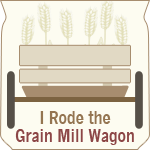As a child in elementary school, I read a story that stuck with me about six blind men who all touch a different part of an elephant and come to different conclusions as to what exactly it is. In a way, they’re all right, and in a way, they’re all wrong.
One feels the leg and says it is a pillar.
Another feels the tail and says it is a rope.
One feels the trunk and says it is a tree.
Another feels the ear and says it is a fan.
One feels the tusk and says it is a pipe.
Another feels the belly and says it is a wall.
Because none of them could see it in its entirety, they can only determine the truth based on their limited perspective – the part they can touch, the part that makes sense to them.
It seems to me that diet and proper nutrition are a lot like the elephant in the story. Experts and individuals come to various conclusions based on their perspective, but very few people are looking at the whole elephant.
Some people look at fat and say it’s dangerous because it raises cholesterol and causes heart attacks, so they eat only reduced- or low- fat foods. What they forget is that fat is essential to the development and maintenance of their bodies: it provides energy; it controls inflammation, blood clotting, and brain development; it maintains healthy skin and hair; and it helps the body absorb a variety of vitamins. [1]
Others look at calories and insist that if you want to maintain a healthy weight, you need to reduce the amount of calories in your diet. That may be true, but these people are too narrow in their perspective: calories are not the only thing to consider when making healthy food choices. A 100-calorie snack bag ensures you don’t take in too many calories (IF you eat only one!), but is what you’re eating healthy? Does it benefit your body? Does it give you energy? Are there useful, easily absorbed vitamins and minerals in it? What about fiber? Protein? Yes, if you want to lose weight, you have to take in fewer calories than you expend, but be sure those calories are useful to the nourishment of your body.
Then there are people who look at sugar and insist it’s the enemy, so they replace it with substitutes like saccharine and sucralose. It’s true that too much sugar is bad for you, but sugar can be a part of a healthy diet, [2] especially rapadura (sucanat) or turbinado, both less refined sugars. [3] Furthermore, there are sweeteners, such as honey, molasses, and stevia, that actually have health benefits unlike refined sugar, which has absolutely no vitamins or minerals. Compare them to saccharine and sucralose, which are manufactured chemicals that your body is not prepared to digest properly, and have absolutely no nutritional benefits. Besides which, replacing healthy sweeteners with saccharine and sucralose usually causes people to feel they’re eating less, so then they allow themselves to eat more, and in the long run consume more calories than if they had simply gone with regular sugar (or other healthy sweetener) in the first place.[4]
What about those who look at carbohydrates? I know plenty of people who otherwise eat very healthily, who insist that carbohydrates, even complex carbohydrates, are bad for our bodies. Eliminating carbs may help you lose weight in the short run, but in the long run, it leaves out an entire group of nutrients that are beneficial and even necessary.[5]
Then there are those, like myself on occasion, who see the labels “natural” (meaning free of preservatives or other chemical additives) or “organic” (meaning free of pesticides) and assume that the food in question is therefore healthy. Natural and organic are good things, but if you’re talking about a package of cookies… they may be healthier, but they’re not healthy.
I could go on, but I think you get the idea. It’s time to look at the WHOLE elephant. Our bodies need a wide variety of foods and eliminating one whole food group will eventually be detrimental to our health.
So what exactly does the whole elephant look like? Well, maybe my perspective has a blind side, too, but the best I can figure is to make sure every day has as close to the following as possible:
Fresh Fruits and Vegetables: here’s one thing you can’t go wrong on! As long as you also get plenty of protein and fat, there’s no limit to the amount of fruits and vegetables you can eat in a day.
Healthy Fats: As long as you are not consuming more calories than you need in a day, it’s perfectly fine to enjoy fats such as whole milk, cream, butter and red meat. Of course, olive oil is always a good fat, but you may be surprised to learn that coconut oil is another good one. Be sure to avoid hydrogenated oils (trans fats) at all costs!
Protein: For myself, I know that if I don’t have protein regularly throughout the day, I quickly get hungry and shaky and weak. I have talked to many other people who say they experience the same thing. Clearly, protein is an essential element of every meal’s nutrition, and the best and most complete protein is found in animal products. Vegetarians need to be very careful that they consume the right combinations of legumes and grains to provide the complete proteins their bodies need.
Carbohydrates: I don’t think many people find it difficult to eat carbs: they’re often our favorite food group! The trick is to eat the right ones: whole grains, fruits, and starches such as rice and potato. Bad carbs are often white: white flour, refined white sugar, and white rice.
Sugar: Keep it minimal, but don’t eliminate it entirely. I use turbinado (rapadura/sucanat would be even better, but it’s not as easy for me to come by) as my granulated sugar (and I have recently started avoiding brown sugar and powdered sugar almost entirely), but prefer to use raw honey or maple syrup whenever possible. I’ve experimented some with stevia, but I’m not fond of the taste. At any rate, I try to keep my sweets (and remember, sugar hides in a lot of different foods!) to a minimum on any given day.
Natural and Organic: I try to buy natural and organic foods as often as is possible given my budget, but I understand those words are not always synonymous with healthy. Food in a box is still processed food and not the best choice for good health.
Calories: I keep track of my calories at SparkPeople, but I try to maintain a focus on the overall quality of the food I eat. Just because I stayed within my recommended calorie range doesn’t mean I ate the foods that I should have. Thankfully, SparkPeople also keeps track of fat, protein, fiber and a host of other nutrients so I can see quickly at a glance if I’m regularly deficient in any area.
Here’s my challenge to you: step back from the elephant and remove the blindfold. Get a fresh perspective and see what you’ve been missing in your diet lately.
[1] http://www.nlm.nih.gov/medlineplus/ency/article/002468.htm
[2] http://www.betterhealth.vic.gov.au/bhcv2/bhcarticles.nsf/pages/Sugar



Speak Your Mind